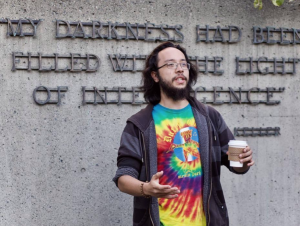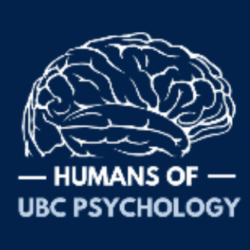
“After high school I wanted to be a doctor because I loved watching House and Scrubs. I figured I shouldn’t base my career trajectory on television, so I went to Langara and got into the university transfer program. Something about Psych really fascinated me and the more I learned, the more curious I got. The part that I find the most interesting about the research side is the idea of like, ‘how can we deceive everyone while still gaining what we need [to know] from them?’ … The clinical side is also fascinating; clinical psychologists help people in solid and tangible ways, and I think everyone should have a therapist. I think everyone should have someone they can go to to share their problems with and bounce things off of. In general, I think the stigma surrounding therapy and clinical psychiatry and needing that kind of help is so completely unjustified and seriously poisonous to society today, because our society is organized in such a way as to really like, if not promote, then incentivize some less-than-prosocial behaviours… and without returning a little bit of sanity into society, without some sort of counterbalancing force, I feel like we’re destined to reach some sort of grim conclusion down the line. … There’s all sorts of unnecessary nonsense that will come with like, anything you do cognitively. If you just took a second and went like, oh wait a minute, that’s the sunk-cost fallacy or that’s the fundamental attribution error… we do these things and we can catch ourselves doing them, but we have to be aware enough to realize when we are doing it… psychology can really help you help yourself realize when you’re not going about something reasonably, which then allows you to double back and go about that thing reasonably. Knowing how to think incorrectly is good because it helps you know how to think correctly.”
